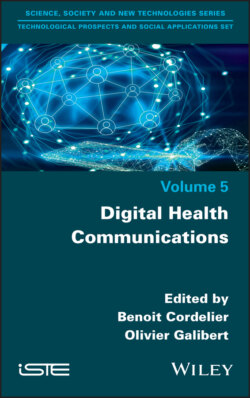Читать книгу Digital Health Communications - Группа авторов - Страница 15
P.4. Digital health communication in the workplace
ОглавлениеAs an extension of the issues defined by Carré and Lacroix, work on digital communication for health organizations is very much alive in the French-speaking ICS community. It highlights the limits of information technology in health care, obviously at the level of institutions, as well as at the level of so-called “urban” professional practices. In particular, following the initial work claiming a crossover between health and organizational communication [GRO 99], and short of the work aiming to cover the entire problematic field, where computerization is supported by an increasingly commercial logic, as well as an industrial one [SAL 16], the work carried out in digital communication of organizations is focused on more limited areas.
From a critical perspective, they highlight the rationalization processes brought about by the application of neo-management in healthcare institutions [BAZ 08, BON 05] and the increasing computerization of patient care processes by healthcare professionals. In a neoliberal context marked by the disengagement of the State and the need to reduce costs, the implementation of the personalized medical record is an emblematic example [MAY 12]. Rationalization processes, aimed at making healthcare ever more efficient, are then nourished by the monitoring and control possibilities offered by digital technologies. The same applies to services based on quantified self or digital self-measurement, which are becoming widespread via smartphone applications. These applications encourage Internet or mobile users to share their personal health data (e.g. the number of calories they spend on their morning jog) with their online community. The aim is to evaluate a positive or even negative physiological progression or evolution, such as weight gain. This measurement of physiological performance, calibrated to that of other members of the community [ARR 13], reflects a form of cybernetic self-optimization, which is certainly fun, but which reminds us of the automation logic already identified by Dominique Carré in 2001. Moreover, these practices, conveyed by industrial players in the collaborative web economy [BOU 10], reinforce the need to establish and respect a “data ethic”. Indeed, what about the marketing exploitation of individual information concerning intimacy? What can be said about the possible risks of using these data [BER 14], for example, by banking institutions looking for reliable information to establish the insurance rate of a mortgage loan?
On another level, following in particular the above-mentioned work of Anne Mayère, recent research points to tinkering and other misuse of the system by healthcare personnel who refuse to accept the increased bureaucracy induced by the traceability of acts and procedures; traceability that is essentially digital (“paperless” logic) and strongly linked to the implementation of the famous electronic personal medical record [COR 13, GRA 17]. From the same perspective, Luc Bonneville and Sylvie Grosjean attempt to explore digital communication in health as the product of a paradoxical opposition between two social logics: the emancipatory logic of promoting a professional practice free of low added value tasks, in favor of time spent with the patient and/or improving care (“clinical reason”), and the reifying logic of a computerization ratio that standardizes professional practices with a permanent concern for efficiency (“economic reason”), leaving caregivers with no other choice than to bypass them with “tinkered” substitution devices [BON 07].
In the wake of questions concerning the meso info-communication approach of health organizations, work is focusing more specifically on groups or categories of healthcare professionals affected by digital technology, or even emerging through digital mediations. How does digital communication accompany the profound changes in the organization of care in healthcare institutions, outside of hospitals and other clinics, or in networks trying to optimize interprofessional coordination in territories with unequal health resources [BOU 03]? The aim here is to show the emergence of new forms of professionalism based on the “scientific” and “operational” mediation of medical knowledge. As a result, new digital healthcare professions are emerging, using the Internet to create communities of patients led either by healthcare professionals switching to community management or by community managers trained in the specificities, particularly ethical, of digital communication in health [GAL 14].
